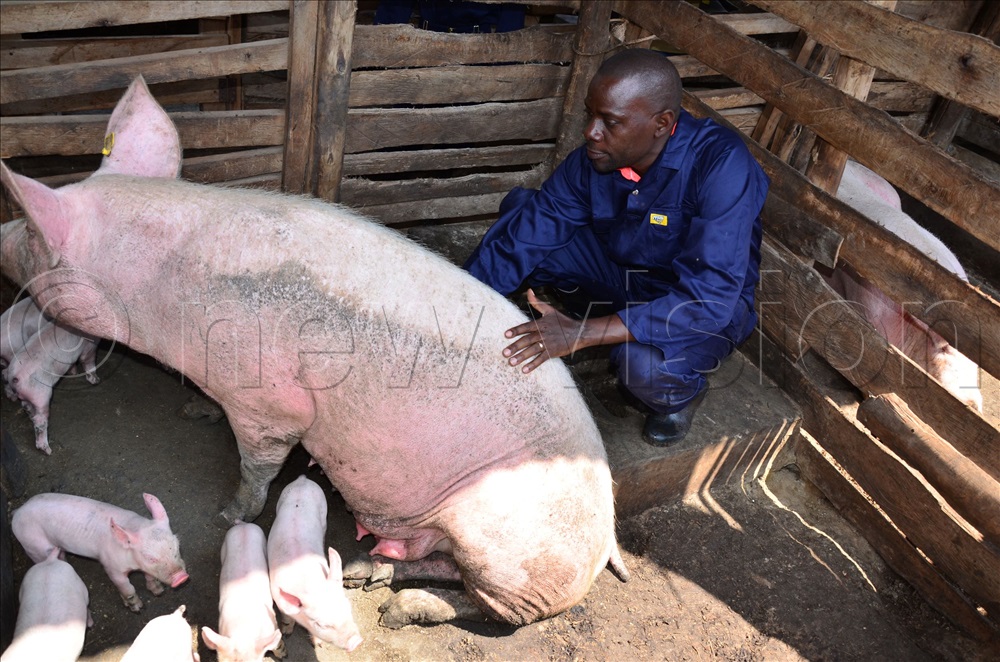By Umar Nsubuga
Starting a successful livestock farm begins with making informed decisions, including selecting healthy animals. Yet, many farmers overlook the importance of knowing the history of the animals they purchase.
Dr David Kamukama, a veterinary doctor and cattle farmer, and Peter Mubiru, another experienced veterinarian, emphasise why understanding an animal’s background is crucial and outline key factors farmers should consider.
According to Dr Kamukama, an animal’s history provides critical insight into its health, productivity, and adaptability.
“Buying animals without understanding their background is like planting seeds without checking their quality. You risk introducing diseases, genetic defects, or low productivity to your farm,” he explains.
Mubiru agrees, adding that knowing an animal’s history helps farmers plan better.
“If you are buying a dairy cow, for instance, the animal’s past milk production records, calving intervals, and medical history can predict how well it will perform on your farm. Without this information, you are essentially gambling,” he says.
What to consider in an animal’s history
Health records
Both experts stress the importance of obtaining comprehensive health records.
“A good seller should provide vaccination schedules, disease treatments, and parasite control measures,” says Dr. Kamukama.
He warns that animals with a history of untreated diseases may carry infections that could spread to other livestock.

Mubiru adds that farmers should ask about previous outbreaks on the farm where the animal was raised.
“Some diseases, like brucellosis or foot-and-mouth disease, can persist even after treatment. Understanding these risks helps farmers take precautions,” he notes.
Genetic background
Dr Kamukama points out that genetics play a significant role in determining an animal’s productivity and longevity.
“If you are buying a breeding animal, ask for its lineage. Strong genetics often translate to higher milk yields, better growth rates, and resistance to diseases,” he explains.
Mubiru emphasises that farmers should look out for inbreeding, which can lead to genetic weaknesses.
“Avoid animals from farms with poor breeding practices. Inbreeding increases the likelihood of defects and reduces productivity,” he advises.
Production records
For animals like dairy cows, goats, or poultry, production records are critical.
Mubiru notes, “A cow that consistently produces high milk yields is more valuable than one with fluctuating or low yields. Always request milk production records or egg-laying histories when buying.”
Dr Kamukama agrees, adding that production consistency is a reliable indicator of an animal’s health and feeding history.
Behavioural history
Behavioural traits often indicate how well an animal has been managed.
“Animals that are aggressive or easily stressed may not adapt well to a new farm environment,” says Dr Kamukama.
He suggests asking about feeding habits, temperament, and how the animal interacts with humans and other animals.
Mubiru advises farmers to spend time observing the animals before purchase.
“Look for signs of stress or unusual behaviour. These can be red flags for underlying health or management issues,” he explains.
Adaptability and origin
Mubiru highlights the importance of knowing where the animal was raised.
“An animal raised in a cold, high-altitude area may struggle to adapt to a hot, lowland environment. Understanding its origin helps you prepare for any challenges in adaptation,” he says.
Dr Kamukama adds that animals adapted to local conditions are generally hardier and less prone to diseases.
“If you are importing animals, be prepared for higher management costs to help them adapt,” he warns.
The risks of ignoring animal history
Both experts caution that neglecting to consider an animal’s history can have dire consequences.
“Diseases introduced by a single sick animal can wipe out an entire herd, causing financial ruin,” says Dr Kamukama.
He recalls cases where farmers lost significant investments due to purchasing animals with hidden health issues.
Mubiru adds that low productivity from poorly selected animals leads to frustration and additional costs.
“You may end up spending more on treatment and feed than you would have if you’d invested in quality animals from the start,” he notes.
How farmers can access animal history
Buy from reputable sellers, both experts agree that trusted breeders or certified farms are more likely to provide accurate records.
Request documentation, always ask for health certificates, vaccination records, and production logs.
Conduct veterinary checks, and have a qualified veterinarian inspect the animals before purchase.
Visit the source farm, Dr Kamukama advises farmers to visit the seller’s farm to assess management practices and overall herd health.
Photos by Umar Nsubuga





